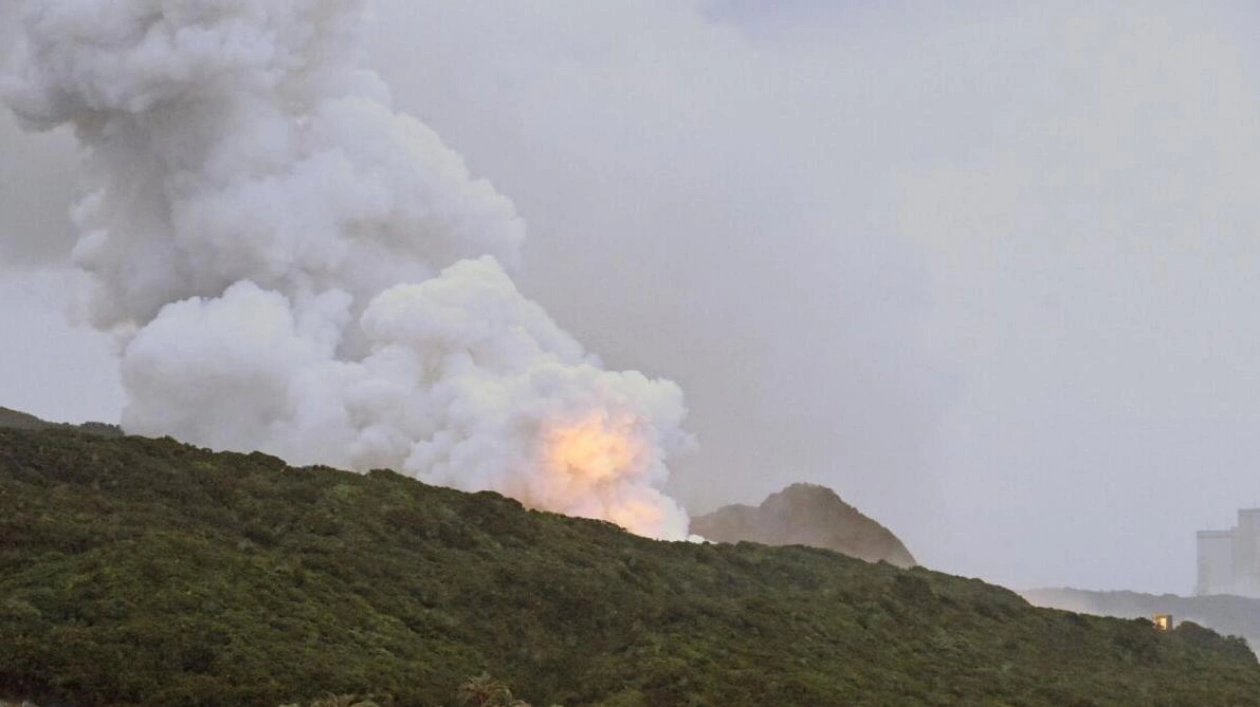A fire erupted during an engine combustion test of the Epsilon S rocket under development at Tanegashima Space Center on the southwestern island of Tanegashima, Japan, on Tuesday, as reported by REUTERS.
Japan's space agency, JAXA, halted an engine test for the Epsilon S rocket on Tuesday following an explosion and subsequent fire, marking another setback that is likely to delay the rocket's inaugural launch beyond the March-end target and impact the national space program. JAXA stated that the combustion test led to an explosion of the second-stage motor 49 seconds after ignition, causing a fire at the Tanegashima Space Center in southwestern Japan. Although no injuries were reported and the fire was extinguished within an hour, the blast caused damage to the facility, and the cause of the incident remains under investigation, according to Epsilon project manager Takayuki Imoto.
Imoto expressed regret at a media briefing, stating, "We are sorry that we couldn't meet everyone's expectations...but a silver lining was that we found (the issue) at a ground test, before putting it for a flight." He added that it will likely take several months to investigate the cause and implement necessary countermeasures. JAXA collaborated with IHI's aerospace unit to develop Epsilon S, the next generation in the Epsilon solid-fuel small rocket series. IHI's shares dropped by as much as 7% in Tokyo trade, with an IHI Aerospace spokesperson confirming that the company is investigating the cause.
The Epsilon S's maiden flight was scheduled for the end of the fiscal year, contingent upon the success of Tuesday's engine test. Previous failures had already triggered months of investigation, delaying space missions and satellite launch plans. In July last year, an Epsilon S engine test failed due to thermal damage to its ignition systems, following a launch failure of a previous-generation Epsilon rocket in 2022.
JAXA's larger flagship rocket, H3, built by Mitsubishi Heavy Industries, faced a failure during its first launch last year but has since succeeded in three flights this year, launching Japanese satellites and securing orders from French satellite operator Eutelsat. Both the H3 and Epsilon S are pivotal to JAXA's goal of developing cost-competitive rockets amid the rise of American commercial launch providers like SpaceX and Rocket Lab.
Japan's Chief Cabinet Secretary Yoshimasa Hayashi emphasized the importance of rocket development in maintaining the autonomy of Japan's space program. In the private sector, IHI-backed Space One is preparing for the second launch of its Kairos small rocket on December 14, following an explosion during its first flight in March. Space One aims to become the first Japanese business to successfully place a satellite in orbit.
Source link: https://www.khaleejtimes.com






